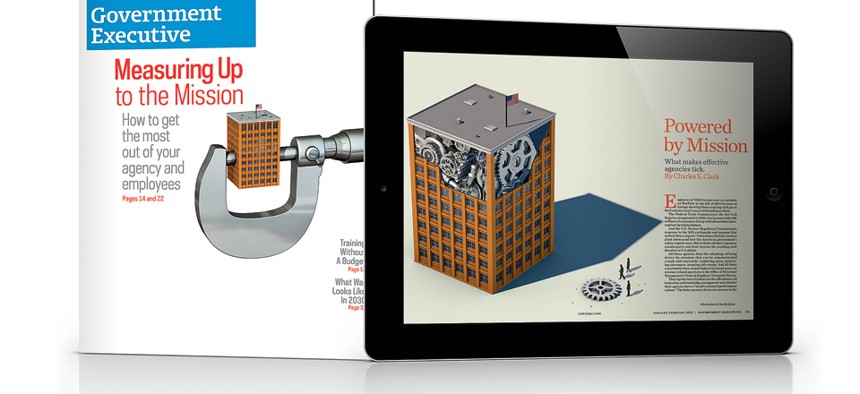
The Forum
To join the conversation click on any story in the issue at govexec.com/magazine
On measuring the mission:
“I enjoyed your recent article “Powered by Mission.” My father was a project manager with NASA’s first manned space program, Project Mercury, and I can attest to the power of mission at that agency. As an employee of HUD, I can also attest that the power of mission can be trumped by the power of organizational dysfunction . . . the agency serves as a good case study, first in the limits of OPM’s Employee Viewpoint Survey and, more importantly, the self-limiting processes of an agency itself.”
—William B. Matthews
On employee satisfaction surveys:
“Has anyone ever seen any change made in any organization as a result of their input to a survey? Consultants are paid to conduct the surveys and make recommendations. Management analyzes and conducts many meetings, sometimes making improvement plans with milestones to meet. But this always gets overtaken by the next crisis, RIF, flavor of the month or mission change, and seldom gets completed, as we launch the next flavor of the month.”
—IMHO Helen
On the new federal manager:
“From what I’ve seen of the ‘new federal managers,’ I am not impressed. They are less knowledgeable of what they are managing and ridiculously obsessed with metrics. Never met a meeting they didn’t like.”
—Knucklehead
On the troubled IRS:
The definition of a rogue agency is one that does not acknowledge and comply with the authority of Congress. The IRS acknowledged targeting politically conservative groups, and the agency acknowledged it was wrong. The IRS stonewalls a congressional investigation into where the decision to use the IRS for political purposes originated. If the IRS refuses to be transparent to a congressional inquiry today, how can they be trusted not to target political groups in the future?
—CDavid
On building employee skills without a training budget:
“I would argue that you have overlooked a couple of other learning tools that have the potential to be extremely powerful in today’s rapid communications environment: Collaborative tools—where an individual or team reaches out to others in the organization through Twitter-like discussion tools. Knowledge/procedure tools—to capture procedures/policies of the organization in a way that can be updated more easily and frequently with a level of detail much better than the old written regulations do. A final learning process is mentoring. Old-fashioned mentoring is still one of the most powerful ways to develop the workforce.”
—will4567
NEXT STORY: Stealthy Advance






